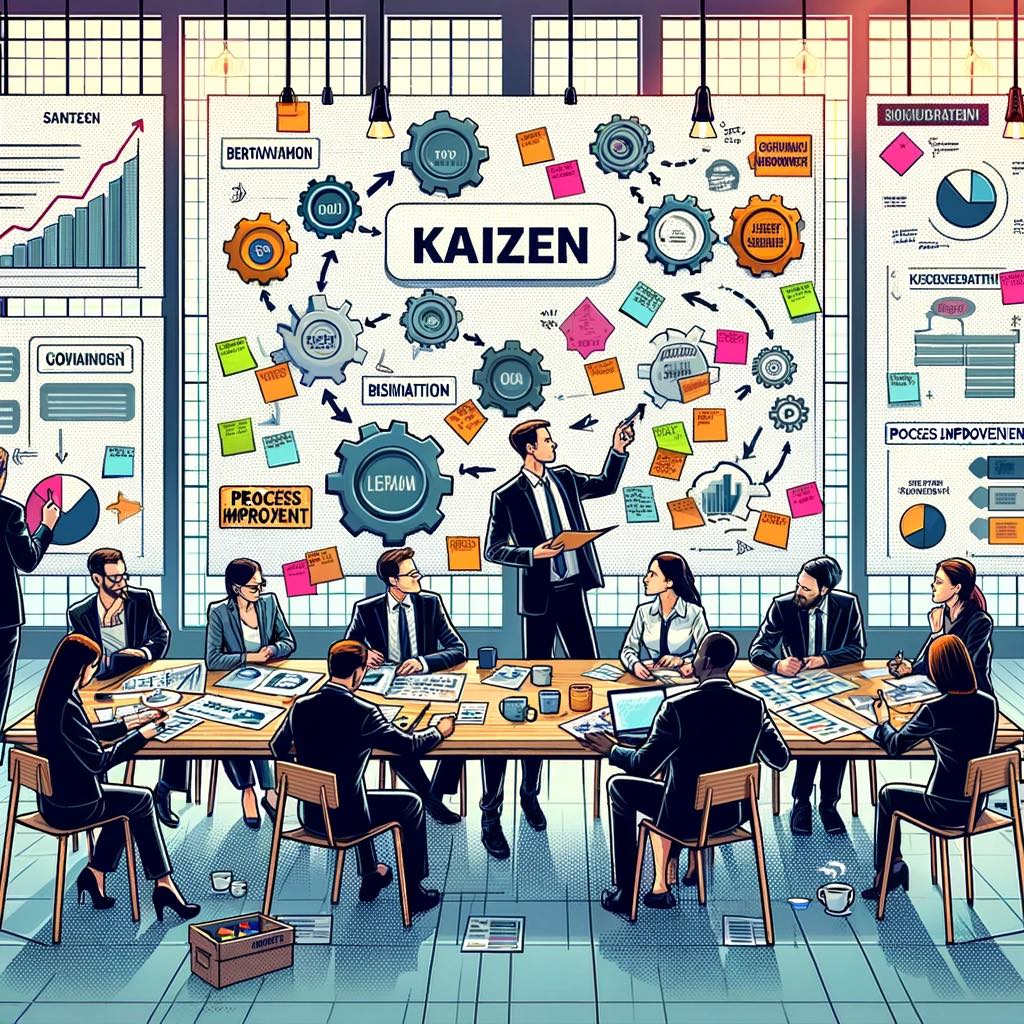Kaizen

Kaizen is a Japanese term meaning “change for better” or “continuous improvement.” It is a philosophy that focuses on the continuous improvement of processes in manufacturing, engineering, business management, and other fields. In the context of management consulting, Kaizen can be particularly useful for organizations looking to enhance their operational efficiency and quality. Here’s a detailed overview of Kaizen in this context:
- Principles of Kaizen: The core principles of Kaizen include making the work environment more efficient and effective, eliminating waste, ensuring high quality, building knowledge and skills, maintaining safety standards, and involving all employees in the continuous improvement process. It encourages small, incremental changes rather than large, radical ones, which can be more manageable and less disruptive.
- Implementation in Organizations: To implement Kaizen, organizations typically engage in activities such as regular team meetings to discuss improvements, setting up suggestion systems where employees can propose ideas, and conducting ‘Kaizen events’ or workshops focused on making rapid changes.
- Benefits: The benefits of adopting Kaizen include improved productivity, higher quality products or services, better employee morale and engagement, and enhanced customer satisfaction. By fostering a culture of continuous improvement, organizations can adapt more quickly to market changes and operational challenges.
- Challenges: Implementing Kaizen can be challenging as it requires a shift in organizational culture towards openness to change and continuous improvement. It demands involvement from all levels of the organization and a commitment to ongoing learning and development.
Similar Tools and Methodologies:
- Lean Management: Similar to Kaizen, Lean Management focuses on reducing waste and improving efficiency. It involves a broader set of principles and practices for managing and improving an organization’s operations.
- Total Quality Management (TQM): TQM, like Kaizen, emphasizes continuous improvement, but it places a stronger emphasis on customer satisfaction and quality outputs.
- Six Sigma: Six Sigma is a methodology that uses statistical tools and techniques for process improvement. It aims to reduce variation in processes and improve quality, which complements the continuous improvement aspect of Kaizen.
- Agile Methodology: Primarily used in software development, Agile promotes adaptive planning and continuous improvement, similar to Kaizen. It encourages flexible responses to change, which can be applied in broader business contexts as well.
Understanding these methodologies and how they compare with Kaizen can help in choosing the right approach for specific organizational needs and goals.



